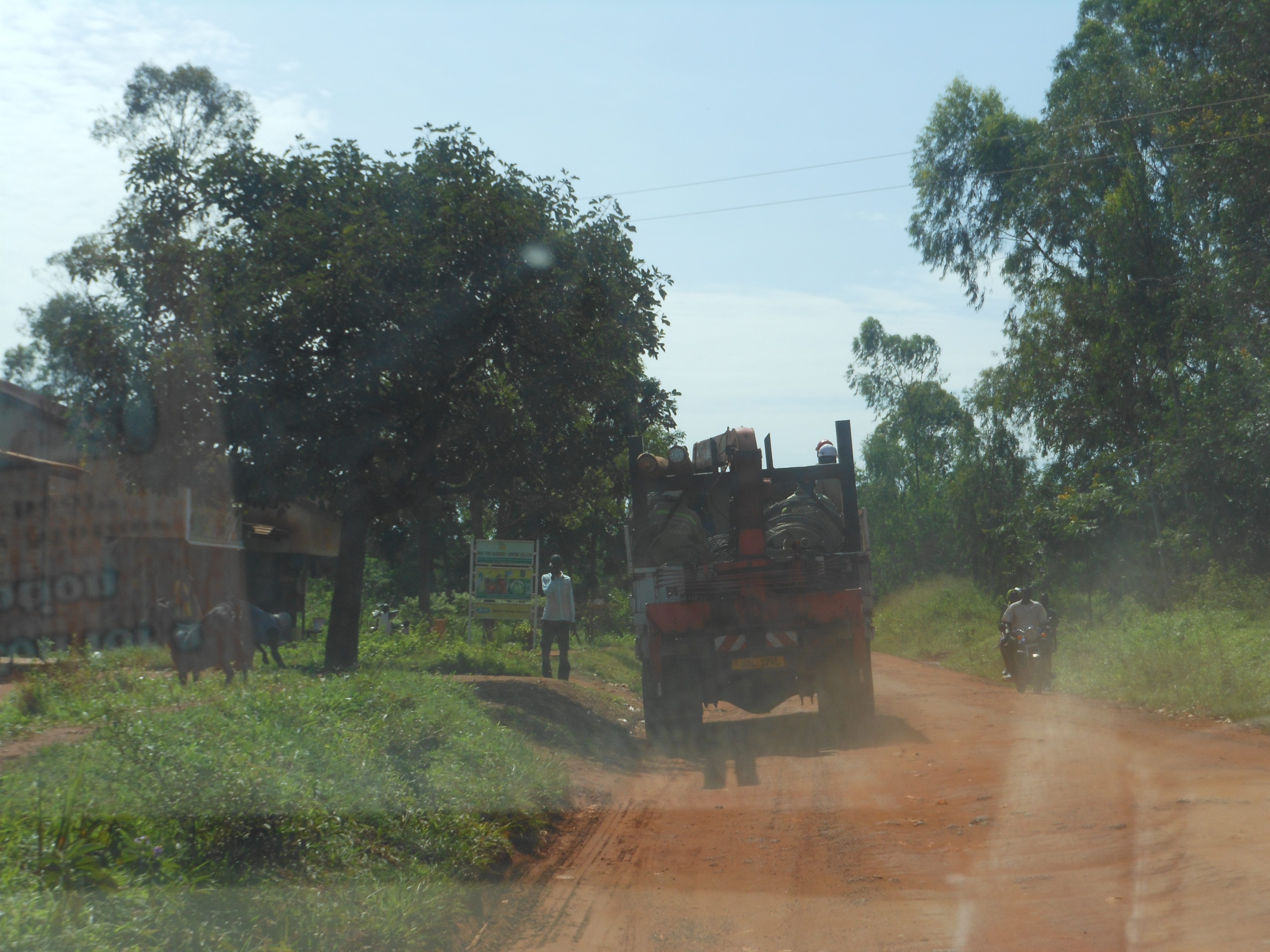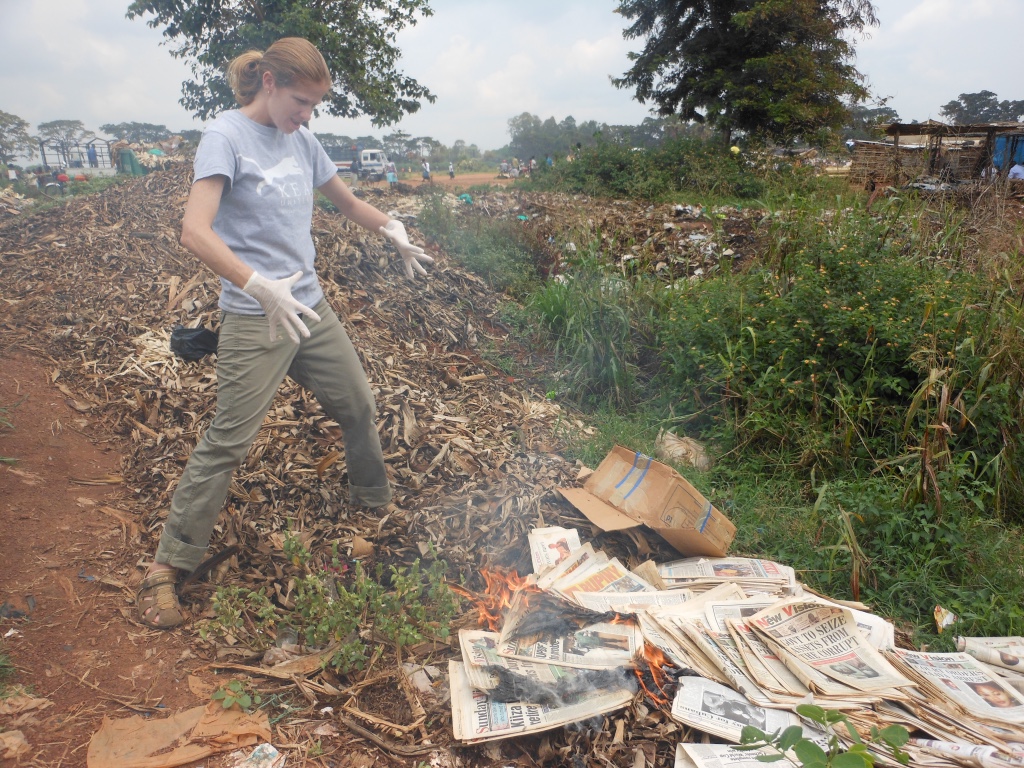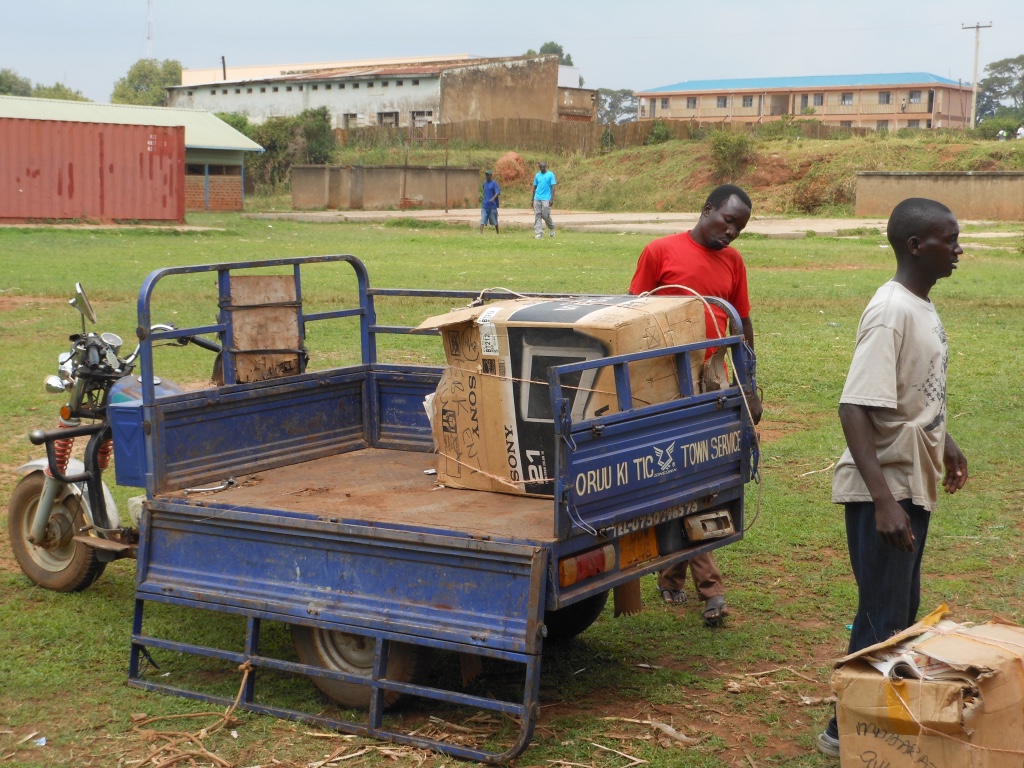Fortunately, some time has passed and some of this has leveled out; but this is real life in Uganda. It’s been a couple of weeks of reality checks. These are not pleasant, but things are improving – or I am adjusting.

It started the week after my return from Zanzibar when I got a call that Peter was very sick – severe malaria was the fist diagnosis – and needed to go to the hospital, but was too weak to ride on the back of a Boda. I’d been out the previous week with a young journalist who wanted to interview Peter for an article on the street kids, so I wanted to introduce her and let Peter decide if he would like to be interviewed. It was brief but it also gave me a chance to see the school: a government school for War Affected Children, a serious hike outside of Gulu. I took a private hire the first time, to be sure I knew where to go. And it was pricey. Can’t do that very often. Walking is a commitment – 45 minutes there along a dusty road, periodically receiving a fresh dusting from passing vehicles.
The good news is that Peter reported he felt accepted for the first time in school: other kids had stories similar to his and he was no longer an outcast. The bad news: “teaching is a problem.’ Schools here “teach” every day Monday through Saturday, 8am to 7pm. This means that the kids wake up early, clean the compound and start class.
Unless it’s a private school (and even here it’s questionable) there is not power (i.e. no lights for study at night) so if there’s homework – it’s done by flashlight or not at all, but usually not at all. Sunday is for church, then classes in the afternoon. No down time. I learned that his school has no teachers on the weekends and they are often not back by Monday, so there’s little or no school on Monday either.
Then there’s the food issue: if you are unlucky enough at the end of the line, the “food is finished” before a lot of students have eaten – so the one real meal they get per day, “is not there.’ And there’s the fact that it’s always posho (think hard, overcooked grits) and beans. hard on the stomach. Always something here surrounding school. It’s not uncommon for the government NOT pay teachers for 6 months.

On Saturday, Patrick – Peter’s friend as a close as you can get to sainthood in human form, walked the 45 minutes to the school with me and we visited. The kids showed off the keyboard, an old discarded piece lacking batteries that morning. It took a while; by they came back with 6-AA batteries, we discovered that the spring was “spoiled.”. We improvised with a key to make the connection and hear a few renditions of a tune missing the upper register. Moving on the music room, we were treated to the sounds of a “spoiled” piano whose string were rusted or missing, the felts hanging off the strikers at perilous angles.
In the process, Peter casually informed us that he’s fainted in football practice – malaria they presume. By Monday, it had progressed to the point that he needed transport to the hospital, but there was none, as the school’s vehicle is “spoiled” and he was too weak to go by Boda. Hours later, they loaded Peter on a Boda with a teacher on the back to hold him on… At the hospital (a government run operation with neither a functioning lab nor antibiotics) I found him severely dehydrated and only semi-conscious and placed on a black plastic covered bed. He stayed the night, so after multiple trips and planning, I provided a blanket and a sheet. Food would have to be delivered the next morning and during the day – since families here provide all services: food, sheets, etc.
To make a long story short, Peter – feeing marginally better – left the hospital without being discharged (street kids are accustomed to a lot of independence) and found his way to another friend’s house. It was morning before we found out his whereabouts and another set of friends (the only ones with a car because they are affiliated with a Canadian funded church) “picked” Peter and brought him BACK to the hospital for a typhoid test, which had to be administered at a clinic because – yep – no functioning lab at the hospital. It came back negative because they’d given him antibiotics for 12 hours, but 10 other students from the school were admitted the same day with similar symptoms.
After a few days on Cypro and anti-malarials, Peter went back to school. After one day, he was out again and last night took 10 phone calls to coordinate another ride to the hospital. Today, we start again. Another PCV whose site is at a better hospital will see if he can wrangle admission there to see if we can get to the bottom of this. It could still be malaria, typhoid, cholera, or giardia. Welcome to the Petrie-dish of diseases.
Moving along to a week that I hope has some celestial-retrograde explanations (because these could dissipate whereas other cause might not…) the man I have been working with on the Street-Kid project became so obnoxious with volunteers I’d referred to him, I had to withdraw my permission for my name to be used. That has resulted in a stream of vitriolic e-mails that are frightening in the intensity of his anger. and have pronounced me: the enemy! So that project is off the books for me, but his presence is still around and the issue still raises its ugly head. The joys of a small town in a place where people get poisoned for less.
And then – the final blow: the library. Much of the work that was done to organize the adult-room of the library was undone, when the bigwigs from Kampala swept through and demanded it be done in the Dewey Decimal System. Never mind that they have no manpower to catalogue the books, no computer, no card-catalogue, etc. So half of the books so carefully arranged and labelled were in stacks, shelves re-arranged, etc. This is so common in the development world that it was just another nail in the coffin. NGO and government offices run from Kampala where there are resources, hand down mandates to the field where they have no concept of what’s “on the ground.’ They issue commands that cannot possibly be implemented because they are completely out of touch with the realities of life, lack of resources, etc. Yes – I know I’m ranting. And I’ve had to step back. I’d already decided I can’t be attached to the outcome of what happens here in terms of sustainability. I can plan for it, but not rely on it. Yet – but I thought I could at least get out of town with and vaguely intact system. Apparently not.
Fortunately, the Children’s Library was left relatively unscathed, but the bigwig had recommended that the already termite damaged 6-foot tall shelves be moved along the outside wall of windows, blocking the windows and only light – so the kids could “play.” Never mind that there is no other light-source and that rain comes in through the windows re-creating the perfect habitat for termites whose mounds are periodically removed from inside the library.

God bless the Ugandan volunteer who has been working with us. Stella, who started this project as a rather unwilling participant asking what we would “give,” has – after seeing our hard work, good ideas and persistence, become a true ally. She’s willing to stand her ground in the Children’s Room. The most amazing victory of yesterday and indeed the last few months came in the form of FIRE. Remember the thousands of newspapers we organized and the many more thousands of duplicates? We’d tried for months to find a home for these and there were 5 more years of termite and mildew-ridden issues stored in the falling down back rooms. She had been intransigent about letting them go. Yesterday, as we were waiting around for a 12-year old artist to paint an anti-malaria cartoon on the wall (lovely work by the way) she surprised us by saying “Let’s burn the newspapers!” Michelle (left) encouraging the blaze.

Jubilant, we got to work taking loads to the pit and setting fire. As the fire began to tickle the edges of some stacks and we were hauling in more, we discovered a man frantically trying to pull them OUT of the fire. After all this time, we accidentally had found a taker. We explained that we had thousands of papers he could have for free if he would get them out of there that same day. In an act of efficiency rarely seen, he arrived with a wooden wheelbarrow. but then commandeered a motorcycle trailer and a bunch of friends and took them all.
